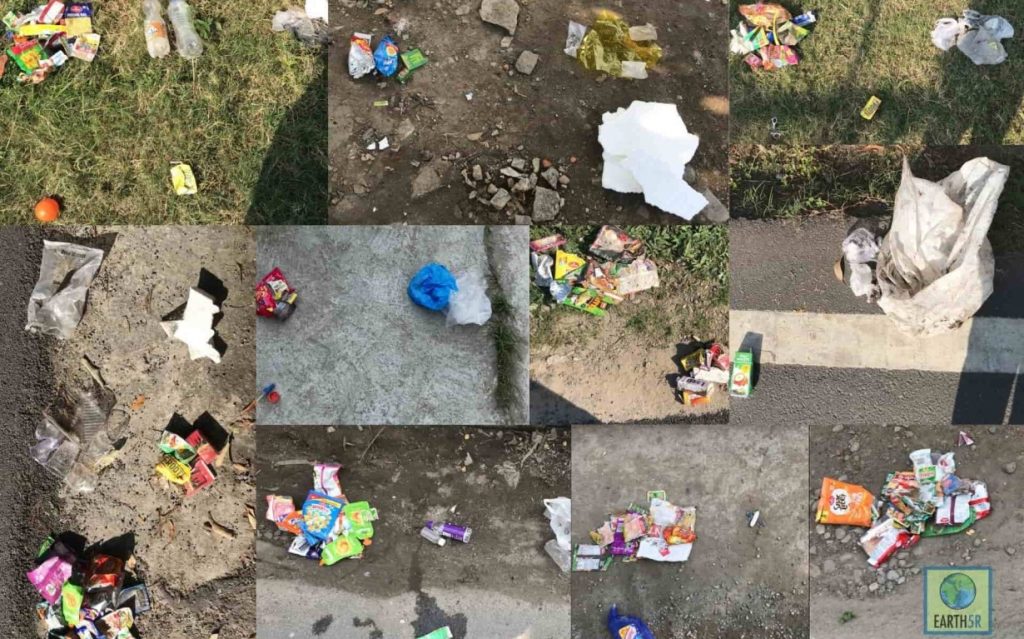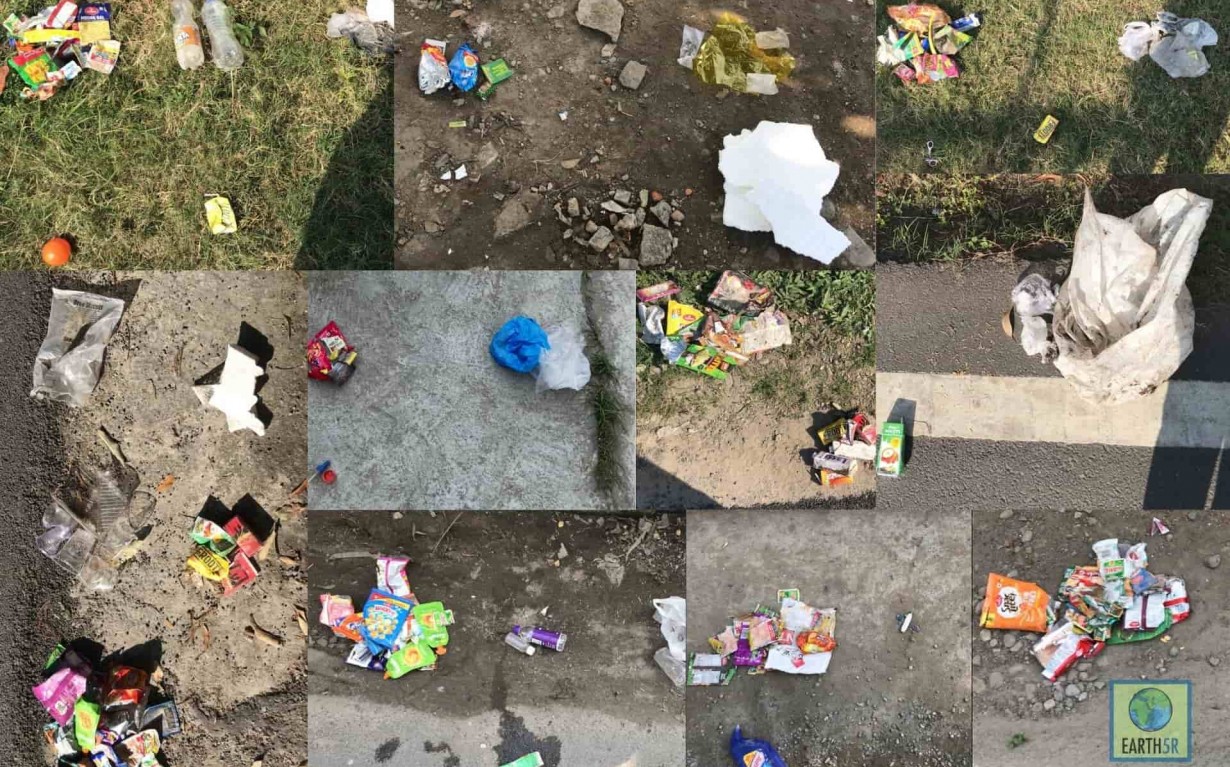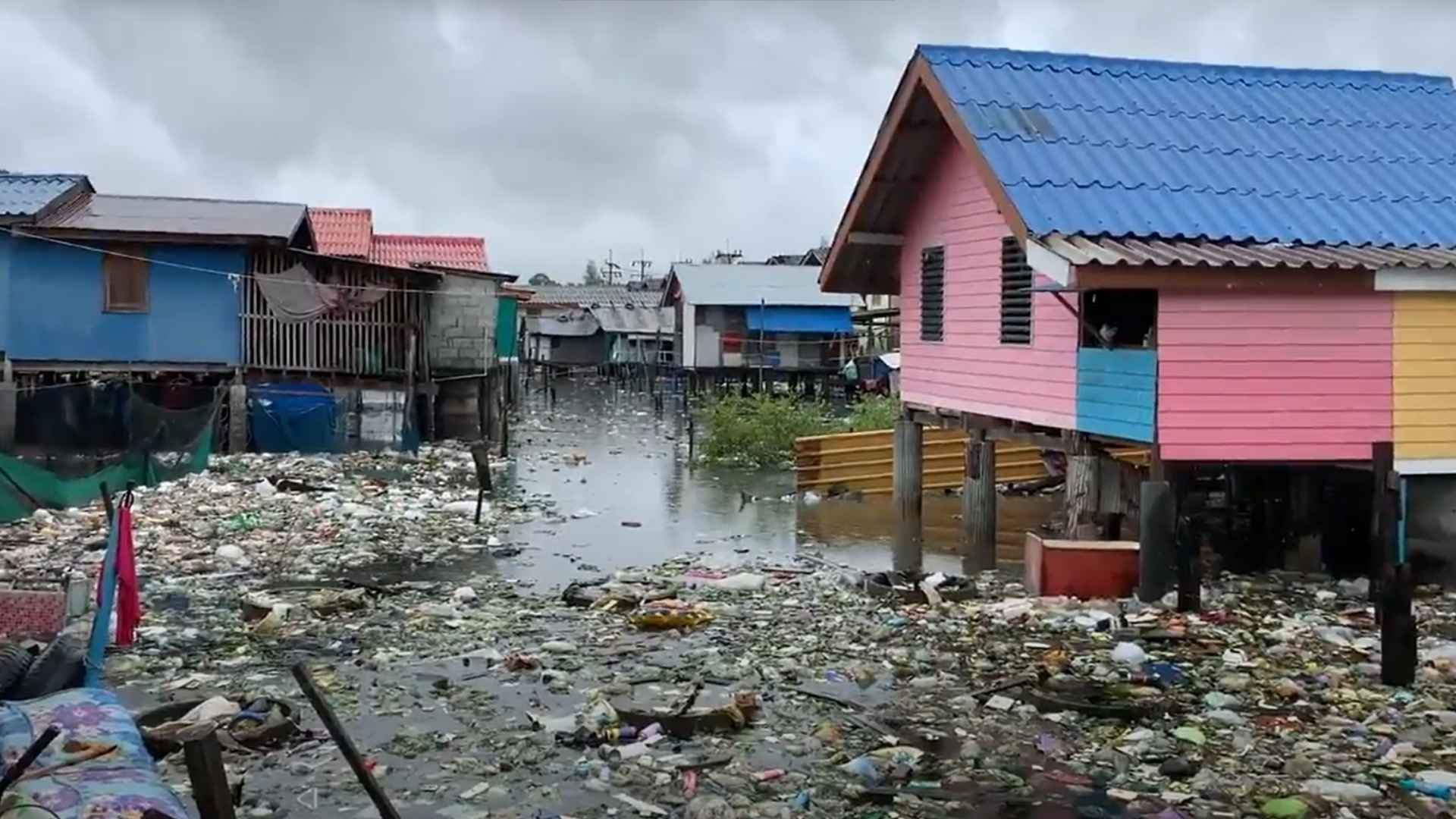To enhance the Plastic Waste Management rules at Dehradun, India, Earth5R, an Environmental Organization based in India initiated a project called ‘Know Your Plastics’. The project aims at raising awareness about plastic waste and also aspires to increase recycling rates of products.

Clean-Up And Classification Of Plastic Waste management rules
As part of the project, volunteers visited 10 locations in their neighborhood to collect the maximum amount of plastic waste possible. A time limit was dedicated to segregating waste into six different categories: MLP(multi-layer packaging), PET( Polyethylene terephthalate) plastics, LDPE(Low Density Polyethylene), HDPE(High Density Polyethylene), Tetra packs and Synthetic fibers. Any other kind of waste that was found was included in the ‘other’ category.
After the waste was segregated, the data put together is analyzed to figure out what category contributes to most of the pollution. It also assists in finding out which companies are generating most of the plastic waste.
Waste Data Utilised For Research Work And Creating Awareness
As an effort to bring into perspective the ongoing issue of plastic waste and how it hinders the implementation of sustainable development goals and environmental growth, some data has been represented below:
- The Changing Markets Foundation stated that as of 2020, Coca-Cola was the largest plastic footprint on earth with 2.9 million metric tonnes of plastic packaging produced annually. While Pepsico, came second with 2.3 millon metric tonnes of plastic waste.
- A Central Pollution Control Board (CPCB) report from 2018-19 puts the total annual plastic waste generation in India at a humongous 3.3 million metric tonnes per year.
- More than half of the plastic waste (approx.60%) goes in for recycling whereas the rest of it goes unpicked in the natural environment.
- The current situation of the COVID-19 pandemic has aggravated the issue with large amounts of plastic and medical waste being disposed of carelessly.
- As per data from 2019, metropolitan cities like Chennai, Bengaluru and Delhi contribute to more than 50% of the plastic waste deposition.
Recklessly increasing dependency on plastics simply because of their durability is choking our waterways and is becoming an immeasurable threat to the terrestrial as well as the aquatic ecosystem!
Recklessly increasing dependency on plastics simply because of their durability is choking our waterways and is becoming an immeasurable threat to the terrestrial as well as the aquatic ecosystem!
Predictions say that the amount of plastic waste in the environment will only keep increasing if no strict action is taken against it.
Plastic Waste Management rules Initiative At Dehradun, India
Arya Mitra, an Earth5R volunteer from Dehradun took the initiative to go about the Global Plastic Waste Crisis from his hometown. He conducted a sequence of 10 cleanup sessions, analysed the waste collected and provided the material.
His views on why he wanted to join the project were, “I wanted to join the ‘Know Your Plastics’ project because I wanted to understand the types of waste and how I could help in achieving a long term goal, not only by picking up waste right now but actually encouraging the society around me to assist in accomplishing the objective of sustainable development. With the help of Earth5R, I would like to raise awareness about plastic waste not only in my city but outside the boundaries too and also do the required steps that need to be implemented in order to bring the crisis under control and gradually solve it.”
With the help of Earth5R, I would like to raise awareness about plastic waste not only in my city but outside the boundaries too and also do the required steps that need to be implemented in order to bring the crisis under control and gradually solve it-ARYA MITRA, EARTH5R VOLUNTEER @DEHRADUN, INDIA
Plastic Waste Data Collected In Dehradun
Cleanup and segregation of data was carried out in 10 different locations by Arya Mitra in his locality.
He collected and analyzed the data, the results are as follows:
- A total of 246 plastic waste items were collected.
- 150 Multi-Layer Packaging(MLP)Products constituted the highest amount of the plastic waste i.e. 60.9%.
- This was followed by 48 Low Density Polyethylene Products (LDPE) waste which made up 19.5% of the total.
- 19 Tetra Packs were found which formed 7.7% of the total.
- 9 High Density Plastic (HDPE) Products were found forming 3.6% of the total plastic waste.
- 5 Polyethylene terephthalate (PET)Products were found which made up 2.03% of the total plastic waste.
Lack of proper waste management leads to waste being found at places which are harmful for the environment. Arya also stated, “According to my findings, most of the waste was found near school boundaries and comparatively lesser around the residential areas. I also wanted to mention that most of the plastic waste material consisted of things which are usually tabooed in the society for example: pregnancy test kits other contraceptives and packets of tobacco. Maybe people are not comfortable with disposing these off at home and so unfortunately, they happen to litter the streets outside!”
I also wanted to mention that most of the plastic waste material consisted of things which are usually tabooed in the society for example: pregnancy test kits other contraceptives and packets of tobacco. Maybe people are not comfortable with disposing these off at home and so unfortunately, they happen to litter the streets outside!– ARYA MITRA, EARTH5R VOLUNTEER
Burning Of Plastic Waste
Due to lack of management in the city, all the waste is littered on the roads and is highly hazardous for the environment. As an outcome of lack of segregation and recycling, plastic is left in the soil to decompose or to be burnt which again poses detrimental effects on the environment.
Another important point that Arya brings up is “I am positive that the rate of plastic consumption in my city is very high. People are not even responsible enough to throw their plastic waste in segregated dustbins that have been set up. Due to their careless behaviour, the entire ecosystem has to bear the consequences.”
This behavior highlights the lack of education and awareness of the people belonging to the city.
How To Solve The Global Plastic Waste Issue?
The responsibility of solving the Plastic Waste Crisis falls directly on the shoulders of the people. They must switch to recyclable and reusable plastics or things that do not pose a threat to the environment.
The government must make policies or laws encouraging plastic ban, use economic incentives to stimulate manufacturers to adopt alternatives to plastic or create revenue that can fund plastic waste cleanup efforts.
As Sylvia Earle, a marine biologist says, “It is the worst of times but it is the best of times because we still have a chance,” we must not let go of that chance to protect our ecosystem and the environment around us. Instead, we must work together towards a brighter plastic-free future leading us on the road to sustainable development. It is all in the hands of those in power after all and as citizens of the world we must be responsible enough to give back to Mother Earth for she has granted to us the gift of life.
Reported by Arya Mitra; Edited by Krishangi Jasani
Learn more about Earth5r



